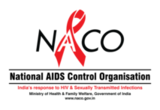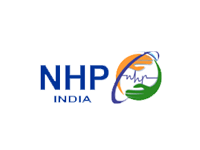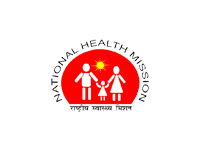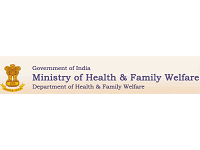Research & Evaluation is a vital component of Strategic Information Management under the National AIDS Control Programme (NACP). National AIDS Control Organisation (NACO) focuses on ensuring translation of research outputs into programmatic action and policy formulation. NACP IV envisaged that research priorities will be customised to the emerging needs of the programme.
Research Agenda
The research agenda under NACP is to position NACO as the leading national body, promoting, conducting and coordinating research on HIV/AIDS through:
- national plan for HIV/AIDS research
- partnership and networking with stakeholders
- supporting capacity building for HIV/AIDS research
- conducting & commissioning HIV/AIDS research on key programmatic issues
- central repository of all relevant resources, research documents and data base on HIV/AIDS in the country
National HIV/AIDS Research Plan
In order to identify key evidence gaps and research needs of the programme and to systematically address them through scientific research, NACO has articulated the ‘National HIV/AIDS Research Plan’ (NHRP). NHRP focused on commissioning time-bound research studies in a phased manner, with a multi-centric approach and evolving a strong mechanism to use the research outcomes for programmatic purposes. The two key activities under the National HIV/AIDS Research Plan is setting priority areas for research in HIV/AIDS and to commission & initiate research studies on the key priority areas.
Vision
The key defining features of NHRP are as follows:
- Research focused to assist evidence based policy decisions and programming
- Multi-centric and representative research for meaningful evidence at the national level
- Ability to offer solutions customised to region specific context
- High standards of scientific rigour and robustness
- Innovative research methods to overcome research barriers
- Institutional collaboration and cross-learning
- Active involvement of programme leading to ownership of research outcomes and their translation into programme
Objectives
- To identify the information gaps and research needs in the programme that require research to generate fresh evidence
- To develop and finalise research priorities in consultation with programme divisions, partners and technical experts
- To commission epidemiological, socio-behavioural, operational, clinical research and evaluations through identified institutes/ organisations
- To consolidate & disseminate research outcomes for programmatic use from time to time
- To promote scientific publication in the form of papers/ articles/ reports/ briefs etc.
Process & key stakeholders
During setting Priorities for HIV/ AIDS Research under NACP-IV, a detailed exercise to assess existing information gaps in the programme was conducted involving programme managers at NACO, state level and development partners. Research priorities identified by Working Groups during NACP-IV Planning Process for all programme divisions were also included and reviewed. Topics identified by Strategic Information Management Unit (SIMU) during various activities were also added to the list.
The compiled list was screened and reviewed to separate the topics that can be studied through analysis of available secondary data and those that need fresh research. Key research questions were developed for the identified topics and were categorised as epidemiological studies, socio-behavioural, bio-medical and clinical research, and operational research.
Compiled list of studies was segregated into three phases depending on the inputs given by programme divisions and development partners. All the programme divisions at NACO have been involved at every stage of finalising the research plan. Costing & mapping of studies to possible funding support was undertaken in consultation with development partners. Around 90 research studies have been identified – phase I (37), phase II (34) and phase III (20). Studies are supported by NACO through domestic funding and by development partners mainly CDC, USAID and The Global Fund. A Research Plan Screening Committee has also been constituted to screen and evaluate proposals, which are then put up for technical and ethical approval under NACO.
Review mechanism
A multi-stage review process is followed for review of research proposals, beginning from internal review involving research and programme division as well as external review by a panel of experts in the subject area. After receiving feedback, the proposal is then sent to the Principal Investigator for revision; and the revised proposal is put up to the Technical Resource Group on R&D for technical review and then to the NACO-Ethics Committee for ethical approval. A snapshot of the review mechanism is provided below:
Collaboration with ICMR
Another key aspect of the research activities at NACO is collaboration with the Indian Council of Medical Research. Some of the key aspects of this collaboration is presented below:
-
Technical review of Indo-foreign collaborative research proposals received from Indian Council of Medical Research through established mechanism of review of proposals of NACO; which include
Internal review
External review; and
Technical Resource Group on R&DNACO is also a member of the Health Ministry’s Screening Committee (HMSC), which is a Committee constituted by the Government of India for approval of Indo-foreign research proposals. Secretariat of HMSC is present at the Department of Health Research, ICMR.
- Technical review of ICMR supported research proposals received from them, through internal review mechanism of NACO; after which the proposals are reviewed and approved in the Project Review Committee (PRC) on HIV/AIDS and STIs of ICMR. DDG (Research), NACO is member of the PRC, ICMR.
- Technical review and approval of research proposals received independently from Research institutes/organisation, Centres of Excellence, Medical Colleges which are not or within the list of priority areas for research under NACP IV
- Technical review and approval of research proposals received for PG, MD, PhD or other such requests through a faster internal review by State AIDS Control Society if the thesis request for primary or secondary data collection pertains to one. If the thesis request pertains to more than one centre, it is centrally reviewed at NACO by the Research Division
Coordination of activities of the Network of Indian Institution for HIV/AIDS Research
A research consortium called the Network of Indian Institutions for HIV/AIDS Research (NIIHAR) has been set up to promote collaboration, training & capacity building among research institutions in HIV/AIDS research. The purpose of NIIHAR is to facilitate and undertake operational research and evaluation studies in epidemiological, behavioural, social and bio-medical disciplines. This consortium will pool resources and expertise to conduct high quality, collaborative, multi-centric research that will help evidence based decision making on policy, management and evaluation of interventions.
The basic responsibilities of the NIIHAR consortium are:
- Participation in various studies including multi-centric funded by NACO
- Participation in training and capacity building programmes of Individuals and Institutions
- Organising Annual Conference on HIV/AIDS Research
- Deputation of experts to NACO as short-term consultants based on specific requirements
Capacity Building Initiatives in Operational Research and Ethics in HIV/AIDS research
One of the agendas under Research Division at NACO is undertake capacity building of programme managers, researchers and young scientists through the Operational Research & Ethics Workshops. The objective of the workshop is to build the capacity in developing research protocols and in synthesizing research and evaluation into evidence-based programs and policies.
The methodology followed during the workshop is "learning by doing" in which forenoon sessions are devoted to sessions on research - methodology, sampling design, framing research questions, ethical issues, case studies etc while the afternoon sessions are devoted to developing OR research protocols on the identified themes. Based on the priority areas given by the programme, the participants are divided into groups to work together on multi-centric study protocols under the guidance of mentors - assigned to each group. All the OR protocols coming out of the OR workshop are funded by NACO through the domestic budget. In the past 4 OR workshops and 5 Ethics Workshops have been organised on various programme components e.g. Management of STI/RTI, Basic Services, Care, Support and Treatment Services and Targetted Interventions.
NACO Research Fellowship Scheme
As part of the capacity building initiatives, NACO has instituted NACO Research Fellowship Scheme.
Objectives:
- Facilitate capacity building of young researchers in the country for undertaking HIV research
- Promote inter-disciplinary, multi-site, action, intervention and operations research
- Increase skills in communicating research findings for impacting policy and programme
- Provide opportunities to young researchers to pursue research
- Serve as an incentive for them to take up quality and need based research in HIV/AIDS
Outcome:
- 4 rounds conducted so far (2008-09, 09-10, 11-12, 12-13)
- 40 Fellowships have been awarded
- Deliverables submitted by Fellows to NACO
Impact:
Creating good advocacy for HIV/AIDS research and a pool of young scientists and researchers for HIV/AIDS research
A fresh round of NACO Research Fellowship Scheme (NRFS) has been advertised recently.
Dissemination of HIV/AIDS Research Outcomes
Brown Bag Seminar Series
In line with the spirit of cross-institutional collaboration and capacity building, a new initiative is being undertaken in the form of Brown Bag Seminar Series. The aim of the Series is to inform as well as build capacities & knowledge of programme managers at NACO, development partners and other key stakeholders on new developments in research. We are starting this initiative from 2nd November, 2016 beginning with a talk on “Substance Use & Treatment Adherence – Issues & Strategies” by Population Council.
Dissemination
One of the key outcomes of all evidence generation is to disseminate findings and inform the programme to facilitate mid-course corrections. In the past, a National Conference on HIV/AIDS Research has been organised at New Delhi on the Theme, Towards Evidence - Policy linkages in HIV/AIDS Research. A Pre- conference Workshop on “HIV/AIDS Research: Challenges & Perspectives” was held. The main purpose of holding dissemination was to provide evidences from research for programme planning and policy formulation.
- Final_Research Compendium Volume 1 Download (37KB)

- Technical Brief on ANC data for tracking epidemic Download (37KB)

- Technical Brief on Changing trends in sex work Download (37KB)

- Technical Brief on EID Download (37KB)

- Technical Brief on HIV Self testing Download (37KB)

- Technical Brief on Prong 2 Download (37KB)

- Technical Brief on Single Window Model Download (37KB)

- Technical Brief on Viral load testing Download (37KB)

- Format for proposal submission to NACO & TRG Download (17 KB)

- Application format to NACO-Ethics Committee Download (97 KB)

- Format for Progress Report of Projects to NACO Download (37KB)

- Quarterly Progress Report to NACO Download (37KB)

- Format for Final Report submission to NACO Download (37KB)

- Format for submission of Project Summary Download (37KB)

- SOP for Research Proposals/ Projects submitted to NACO/ SACS Download (37KB)



























